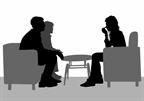Illegal Drug Use Information, Adult
Illegal drugs are chemicals and substances that are illegal to use, sell, or have (
possess). Health care providers and pharmacies do not use or carry these types of drugs to treat medical problems because they can cause serious side effects and can lead to death. Examples of illegal drugs include:
What is drug dependence?
Using illegal drugs often leads to dependence or addiction. When you use certain drugs over a long period of time, your brain chemistry changes so that you can no longer function normally without that drug. This is called drug dependence. Drug dependence can cause you to:
Have unpleasant feelings and physical problems when you stop using the drug (withdrawal).
Be unable to perform at work or at home, or do the activities you used to do, without using the drug.
Some drugs make people feel so good that they want to use the drug again and again. This is called drug addiction. People who are addicted spend a lot of time seeking out the drug so that they can get the feeling they want from it. Addiction and dependence can be very hard to overcome.
How can illegal drug use and dependence affect me?
Using an illegal drug only once can have a major impact on your life. It is possible to die from side effects after using a drug just once. If you use an illegal drug repeatedly, you may need to take larger and larger doses of the drug to experience the feelings you want. Drug dependency and addiction may lead to:
Being unable to care for yourself and others.
Trouble with finances due to using your money for drugs.
Withdrawal, if you stop using the drug.
Negative effects on your relationships and work performance. It causes others not to trust you. If you have children, you could lose custody of them.
- Behavior problems, such as:
Jail or prison. This can affect your ability to find a good job or continue your education.
Health problems such as tooth loss, skin problems, heart and lung disease, and stomach problems.
A drug overdose. This is a dangerous situation that requires hospitalization and often leads to death.
- If you are a woman, you may have problems with your pregnancy, including:
Losing the pregnancy early (miscarriage), early delivery (premature birth), or delivering a lifeless infant (stillbirth).
Slow or abnormal growth (birth defects) of your unborn child.
Giving birth to a newborn who is addicted to illegal drugs.
What actions can I take to avoid illegal drug use?

To avoid using illegal drugs:
Find healthy ways to cope with stress, such as exercise, meditation, or spending time with family and friends. Talk with your health care provider about how you feel and how to cope with stress.
Spend time with people who do not use illegal drugs, or make new friends who do not use drugs.
Do something else instead of using drugs. You can exercise, take up a hobby, or participate in activities that you can do with others.
Do not be afraid to say no if someone offers you an illegal drug. Speak up about why you do not want to use drugs. You can be a positive role model for others.
Work with a health care provider or counselor to create a program for yourself to help you deal with various aspects of drug use or addiction.
You can find more information about illegal drug use, dependence, and addiction from:
Contact a health care provider if:
-
You use illegal drugs and you want help to change your addictive behavior.
-
You lose interest in things you used to enjoy, like hobbies or family activities.
-
Your eating or sleeping habits change as a result of drug use.
-
You use medicine to get the same effects as a drug. This is illegal use and can become addictive as well.
-
You stopped illegal drug use previously and you start actively using it again (relapse).
If you ever feel like you may hurt yourself or others, or have thoughts about taking your own life, get help right away. Go to your nearest emergency department or:
-
Call your local emergency services (911 in the U.S.).
-
Call a suicide crisis helpline, such as the National Suicide Prevention Lifeline at 1-800-273-8255 or 988 in the U.S. This is open 24 hours a day in the U.S.
-
If you’re a Veteran:
Summary
-
Illegal drugs are chemicals and substances that are illegal to use, sell, or possess.
-
Using illegal drugs often leads to dependence or addiction. Addiction and dependence can be very hard to overcome.
-
If you use illegal drugs, look for resources to help you quit and find healthy ways to cope with stress.
This information is not intended to replace advice given to you by your health care provider. Make sure you discuss any questions you have with your health care provider.
 To avoid using illegal drugs:
To avoid using illegal drugs: